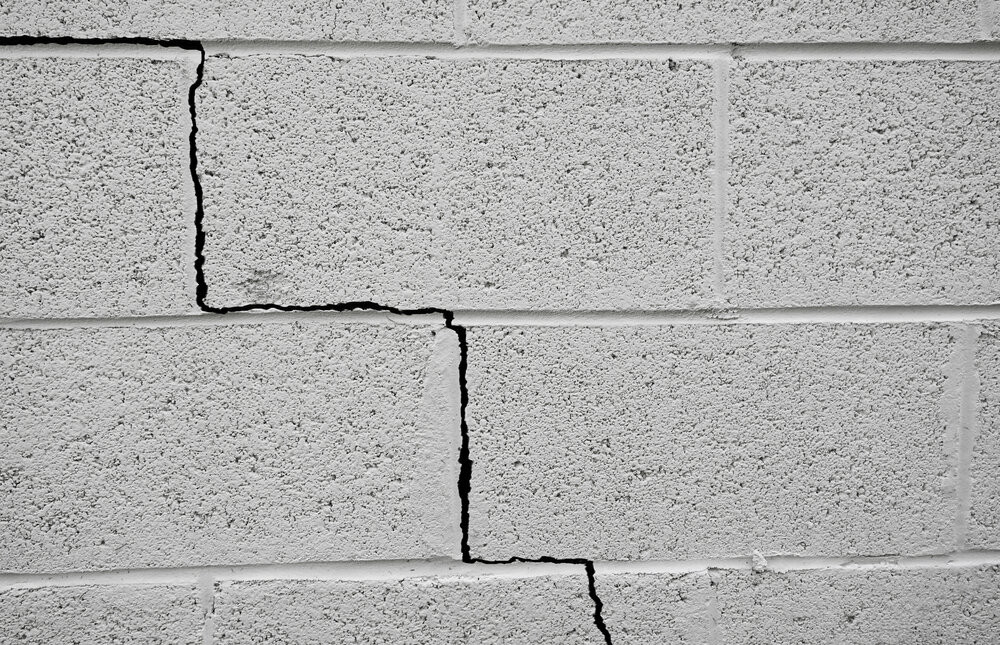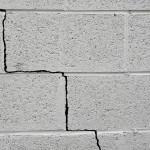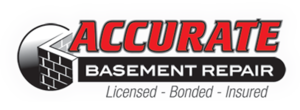A strong foundation is the cornerstone of any well-built home. It supports the entire structure, ensuring stability and longevity. However, foundations can develop issues over time due to various factors such as soil movement, water damage, and natural settling. When these problems arise, prompt and effective foundation repair is essential to maintaining the safety, value, and integrity of your home. In this blog, we’ll explore the common causes of foundation problems, the signs that indicate your foundation may need repair, and the most effective methods for addressing these issues.
Understanding Foundation Problems
Before diving into the specifics of foundation repair, it’s important to understand why foundation problems occur. The foundation of a home is typically constructed from concrete, a durable material that provides a solid base. However, the soil beneath and around the foundation plays a crucial role in its stability. Various factors can affect the soil and, consequently, the foundation:
- Soil Movement:
Soil movement is one of the most common causes of foundation problems. Different types of soil have different properties, and some are more prone to movement than others. Expansive soils, for example, contain a high percentage of clay, which swells when wet and contracts when dry. This constant expansion and contraction can exert pressure on the foundation, leading to cracks and shifts.
- Water Damage:
Water is another major culprit behind foundation issues. Poor drainage around the home, heavy rainfall, or plumbing leaks can cause water to accumulate around the foundation. Excess moisture can erode the soil, create voids beneath the foundation, and weaken its structure. Additionally, water can increase the pressure on basement walls, leading to bowing or cracking.
- Poor Construction:
In some cases, foundation problems are the result of poor construction practices. If the foundation was not properly designed or built to handle the weight of the home and the conditions of the site, it may be more susceptible to issues. Inadequate reinforcement, improper soil preparation, and substandard materials can all contribute to foundation failure.
- Natural Settling:
Over time, all homes experience some degree of settling as the weight of the structure compresses the soil beneath it. While minor settling is normal, excessive or uneven settling can lead to foundation problems. This is particularly common in homes built on fill soils, which are more prone to shifting.
Signs That Your Foundation Needs Repair
Foundation problems can manifest in various ways, and it’s important for homeowners to recognize the signs early on. The sooner you identify and address foundation issues, the less extensive and costly the repairs will be. Here are some common signs that your foundation may need repair:
- Cracks in Walls and Floors:
Cracks are one of the most obvious signs of foundation problems. These cracks can appear in various places, including the exterior and interior walls, floors, and ceilings. While small hairline cracks may not be a cause for concern, larger cracks, especially those that are horizontal or stair-stepped, can indicate significant foundation movement.
- Uneven or Sagging Floors:
If you notice that your floors are uneven, sagging, or have developed a noticeable slope, it could be a sign of foundation settlement. This issue is often accompanied by gaps between the floor and baseboards, as well as creaking or bouncing floors.
- Sticking Doors and Windows:
Doors and windows that are difficult to open or close are another common indicator of foundation problems. As the foundation shifts, it can cause the frames of doors and windows to become misaligned, leading to sticking or gaps around the edges.
- Gaps Around Exterior Windows and Doors:
If you notice gaps around the exterior windows and doors, it may be a sign that the foundation has shifted. These gaps can allow water and pests to enter the home, exacerbating the problem.
- Bowing or Leaning Walls:
Bowing or leaning basement walls are often a sign of excessive pressure on the foundation. This can occur when the soil around the foundation becomes saturated with water, exerting lateral pressure on the walls. If left untreated, bowing walls can lead to structural failure.
- Chimney Leaning or Cracking:
A chimney that is leaning or has developed cracks may also be a sign of foundation problems. The chimney is often built on its own foundation, which can be affected by the same issues as the main foundation.
Foundation Repair Methods
Once you’ve identified signs of foundation problems, it’s important to consult with a professional foundation repair contractor to assess the extent of the damage and recommend the appropriate repair methods. There are several techniques used to repair and stabilize foundations, each suited to different types of problems:
- Piering and Underpinning
Piering, also known as underpinning, is a common method for stabilizing and lifting a foundation that has settled or shifted. This technique involves driving steel piers or helical piles deep into the ground beneath the foundation until they reach stable soil or bedrock. The piers are then used to lift the foundation back to its original position and provide ongoing support.
There are two main types of piers used in foundation repair:
- Steel Piers: Steel piers are driven deep into the ground using hydraulic equipment until they reach load-bearing soil or bedrock. These piers are then attached to the foundation to lift and stabilize it.
- Helical Piers: Helical piers are similar to steel piers but have helical plates that allow them to be screwed into the ground. This design provides additional stability and is often used in situations where the soil conditions are challenging.
Piering is a highly effective method for addressing foundation settlement and is commonly used in both residential and commercial applications.
- Slabjacking
Slabjacking, also known as mudjacking, is a technique used to lift and level sunken concrete slabs, such as those found in foundations, driveways, or sidewalks. The process involves drilling small holes in the concrete slab and injecting a mixture of cement, sand, and water (or a polyurethane foam) beneath the slab. This mixture fills voids and raises the slab back to its original position.
Slabjacking is a cost-effective solution for addressing minor foundation settlement issues and is often used in conjunction with other repair methods.
- Carbon Fiber Reinforcement
For foundations with cracks or bowing walls, carbon fiber reinforcement is an effective, non-invasive repair option. Carbon fiber straps or sheets are applied to the interior surface of the foundation walls, providing additional strength and preventing further movement. This method is particularly useful for addressing minor foundation problems before they worsen.
- Foundation Replacement
In severe cases where the foundation is beyond repair, partial or complete foundation replacement may be necessary. This process involves temporarily lifting the structure to remove the damaged foundation and replace it with a new one. Foundation replacement is typically the last resort due to its high cost and complexity.
- Exterior Waterproofing
If water intrusion is a contributing factor to foundation problems, exterior waterproofing may be necessary. This process involves excavating the soil around the foundation to expose the walls and applying a waterproof membrane to prevent water from entering the structure. Proper drainage systems, such as French drains, may also be installed to redirect water away from the foundation.
Preventative Measures to Protect Your Foundation
While foundation repair is essential when problems arise, taking preventative measures can help protect your foundation from future issues. Here are some steps you can take to safeguard your foundation:
- Ensure Proper Drainage:
 Proper drainage is crucial for preventing water from accumulating around your foundation. Make sure your gutters and downspouts are functioning correctly and direct water at least 5-10 feet away from the foundation. You may also want to consider installing a French drain or other drainage system to keep water away from the foundation.
Proper drainage is crucial for preventing water from accumulating around your foundation. Make sure your gutters and downspouts are functioning correctly and direct water at least 5-10 feet away from the foundation. You may also want to consider installing a French drain or other drainage system to keep water away from the foundation.
- Maintain Consistent Moisture Levels:
In areas with expansive soils, it’s important to maintain consistent moisture levels around your foundation. This can help prevent the soil from expanding and contracting excessively. During dry periods, consider watering the soil around your foundation to prevent it from drying out and shrinking.
- Address Plumbing Leaks Promptly:
Plumbing leaks, particularly in the basement or crawlspace, can cause significant damage to your foundation if left unaddressed. If you suspect a leak, have it repaired as soon as possible to prevent water from seeping into the foundation.
- Monitor Your Foundation:
Regularly inspect your foundation for signs of cracks, settling, or other issues. Early detection and repair can prevent minor problems from becoming major structural issues.
- Consult with a Professional:
If you’re concerned about the condition of your foundation, it’s always a good idea to consult with a professional foundation repair contractor. They can assess your foundation, identify potential issues, and recommend the best course of action.
Foundation repair is a critical aspect of home maintenance that should not be overlooked. A strong, stable foundation is essential for the safety, longevity, and value of your home. By understanding the causes of foundation problems, recognizing the signs, and taking appropriate action, you can protect your home from costly damage and ensure that it remains a safe and secure place for you and your family. Whether you’re dealing with minor cracks or significant settlement, working with a professional foundation repair contractor will provide you with the peace of mind that your home is in good hands.
Contact the Professionals at Accurate Basement Repair Today! 414-744-6900




